
By Judy Carmack Bross

If you are a child or one at heart, think tree house and something wonderfully peaceful happens. For a cat, the Tree House Humane Society can mean compassionate care and hope for a loving home. For the community, it means vaccine pop-up sites, helping outdoor cats find long-term living solutions, and affordable pet care for our city with emphasis on vaccination, spaying and neutering.
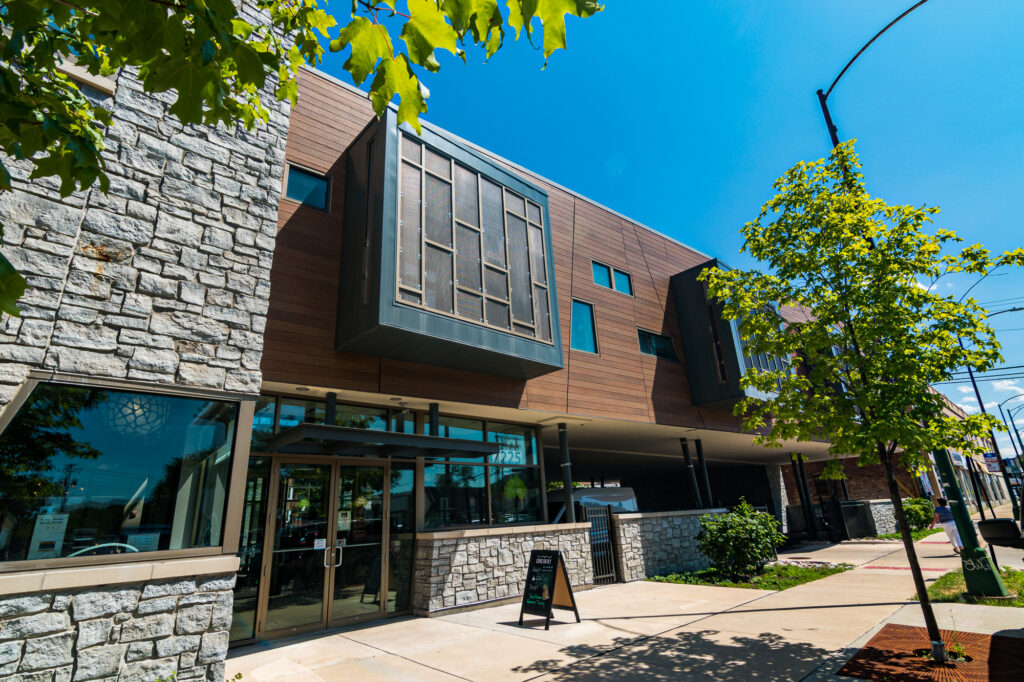
Photo credit to Eric Allix Rogers .
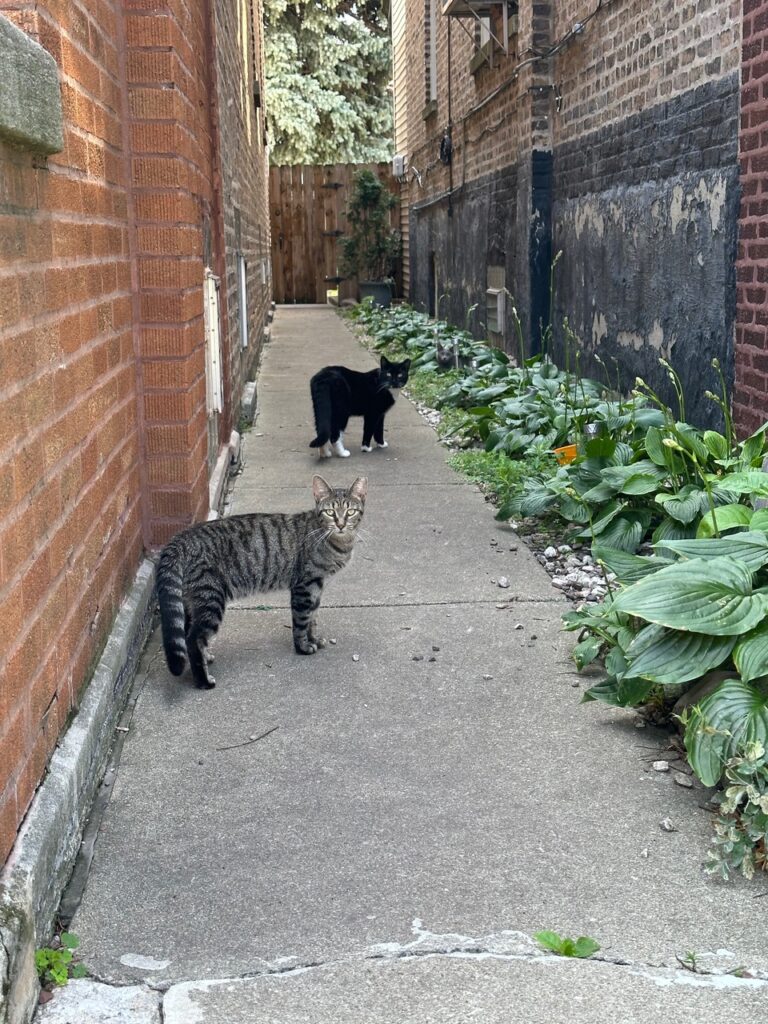
Working Cats are a significant part of their program.
The eco-friendly center features an area in the rear where community or working cats can come to be fed. Inside, bins of toys are distributed to the cats waiting to be adopted in large play areas with soaring windows, heated floors, much room to play, climbing stands of all sizes and fresh air weather permitting. Tree House uses model sheltering practices to determine the size and number of cats in adoption colonies. Each year volunteers and foster care providers give tens of thousands of volunteer hours, and their enthusiasm is catching.
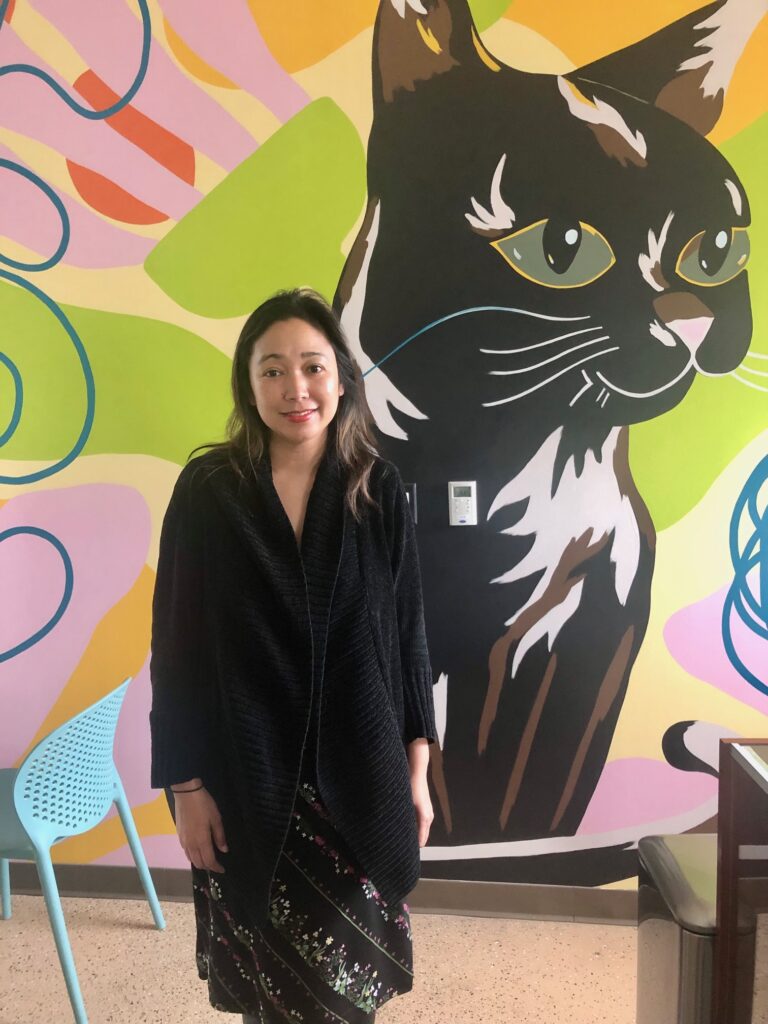
Executive Director Raissa Allaire at Latte Rippie, with a mural of a beloved cat of the same name done by Chicago-based artist Andrea Jablonski.
“We want to make sure that every cat can thrive. Boundless kindness and connections are at the heart of what we do,” Executive Director Raissa Allaire told us. “We are a community resource supporting kitties and those who love them.”
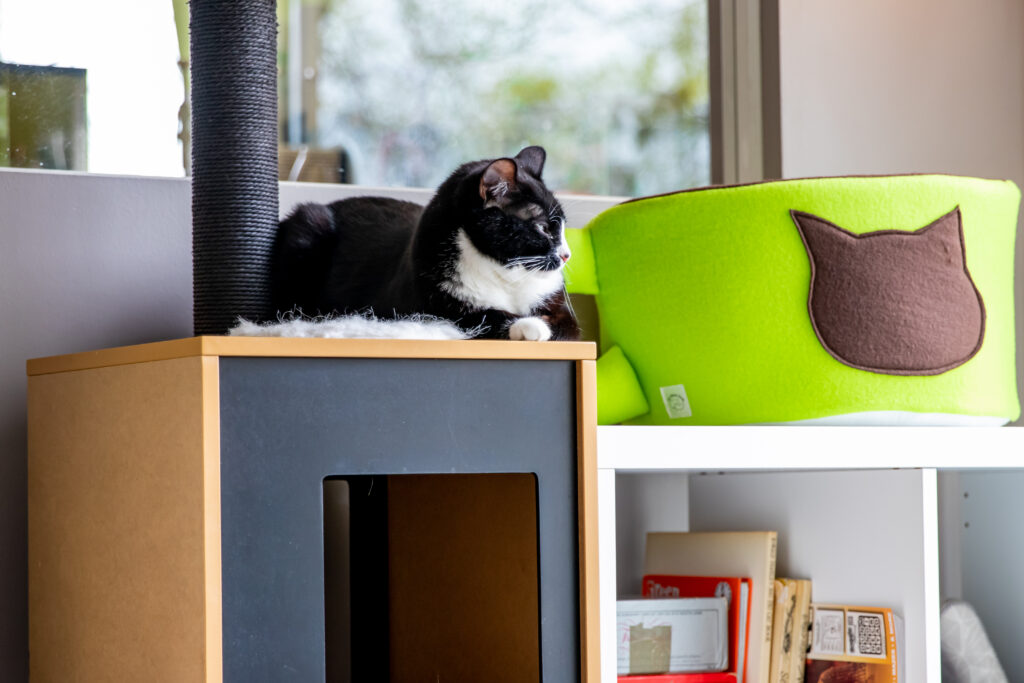
Photo credit to Victoria Sprung Photography.
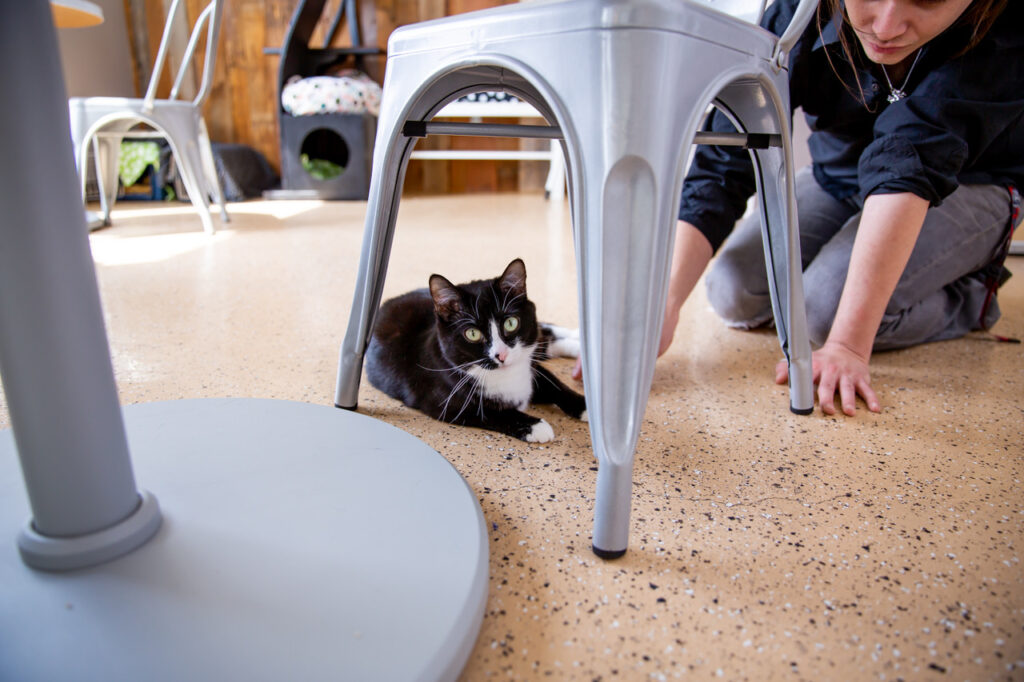
Photo credit to Victoria Sprung Photography.
On a recent visit to Tree House Humane Society at 7225 North Western Avenue, we toured the airy spaces featuring natural light from outside, toured the wellness center featuring affordable vet care, and saw the cat café, where guests can mingle with cats with feline leukemia. “This is not transmittable to humans. Cats with feline leukemia can have a good quality of life and can live many years in good health if the virus and their symptoms are managed well,” Allaire said.
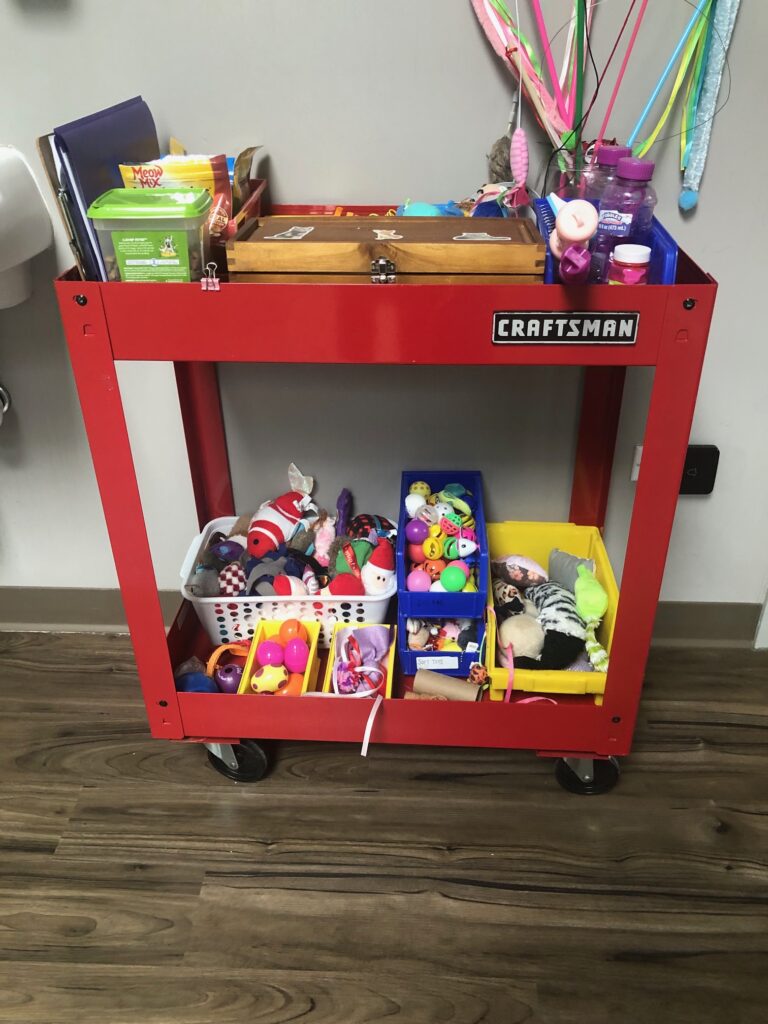
Toys abound for play.
Numbers always count and Tree House statistics for the last two years are movingly impressive: almost 2,000 cat adoptions and working cat placements, 12,900 animals served at the onsite veterinary wellness center — 70 percent cats, 30 percent dogs because families can have both — 13,400 pounds of pet food distributed, and almost 9,000 spays and neuters, resulting in healthier animals, increased public health, and reduced unwanted liters.
Other statistics show that 74 percent of pet owners reported mental health improvements due to pet ownership, and $1.7 million returned to the local economy based on the fact that a cat parent spends on average $902 per year.
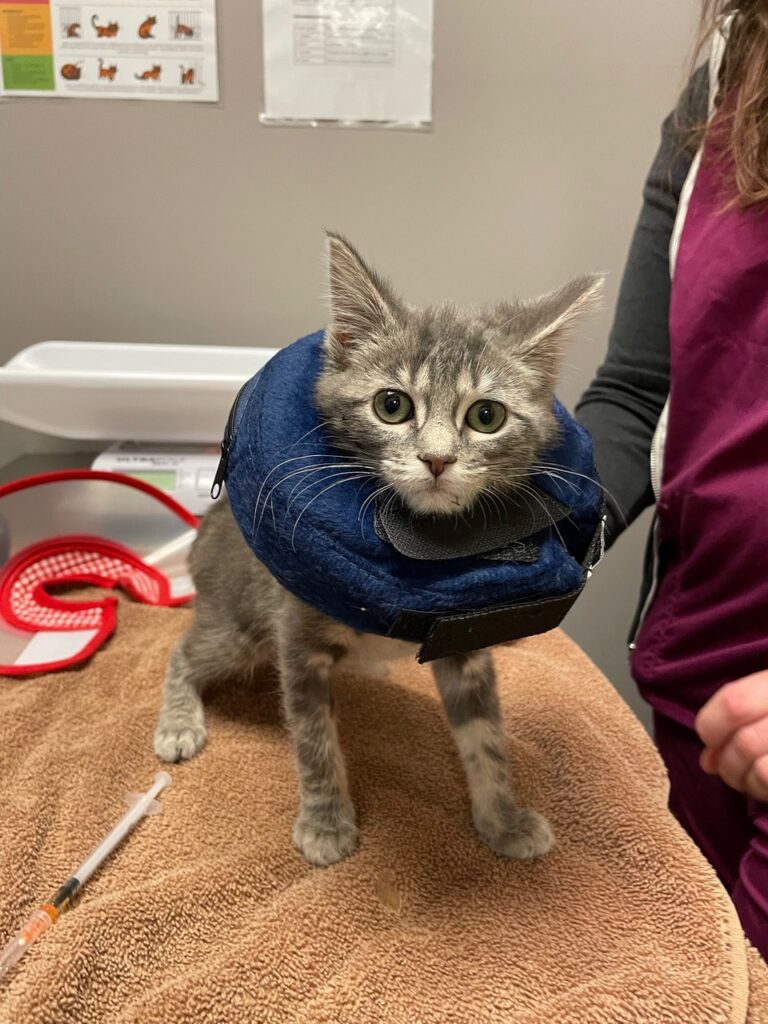
Teeny Tina
Behind statistics are stirring stories about kitties who have passed through the doors of Tree House. Allaire, who came to Chicago from Guam in 1993 to study at the University of Chicago, wrote about Teeny Tina in the latest issue of Catalyst, the Tree House magazine.
“She was brought to us by a local veterinarian at just four months because her family couldn’t handle her due to a chronic medical condition. Despite her struggles, her love of food and treats never wavered and despite her health issues, Tina’s spirit remained unbroken. She was sweet, loving, and ever-hopeful for affection. With her tiny paws reaching out for hugs and gentle strokes she captured the hearts of all who met her.
“Sadly, due to her special needs she was often overlooked by potential adopters, she spent a long and sometimes lonely 18 months waiting for the right family. But she was never truly alone. The Tree House staff and volunteers showered her with love, treats and playtime, ensuring that she felt cherished every day. We never gave up on finding her a loving home.
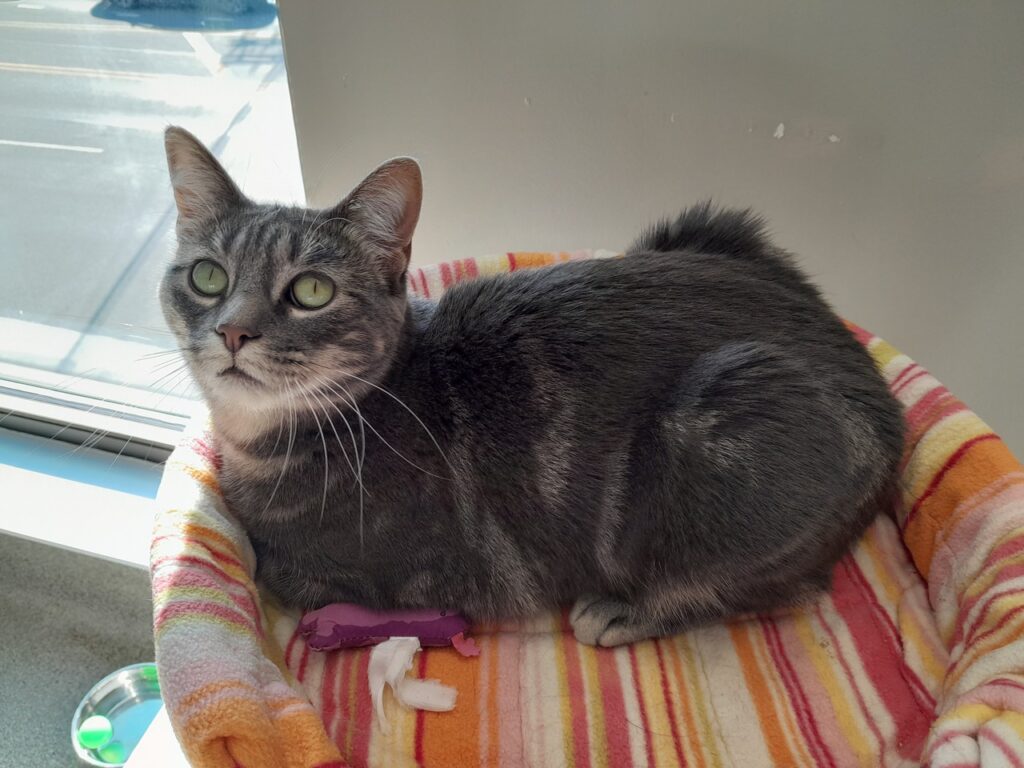
Tiny Tina, all grown up
“And then, fate intervened. Amy, one of our amazing foster volunteers who was already caring for two special cats, couldn’t help but be captivated by Teeny Tina. Although her heart was stolen, Amy knew she needed to fulfill her commitment to her foster cats. Finally, the day arrived when Amy could bring her into her loving home. Together Amy and Teeny Tina have embarked on new adventures, with Teeny Tina even becoming harness-trained, ready to explore the world with her new family.”
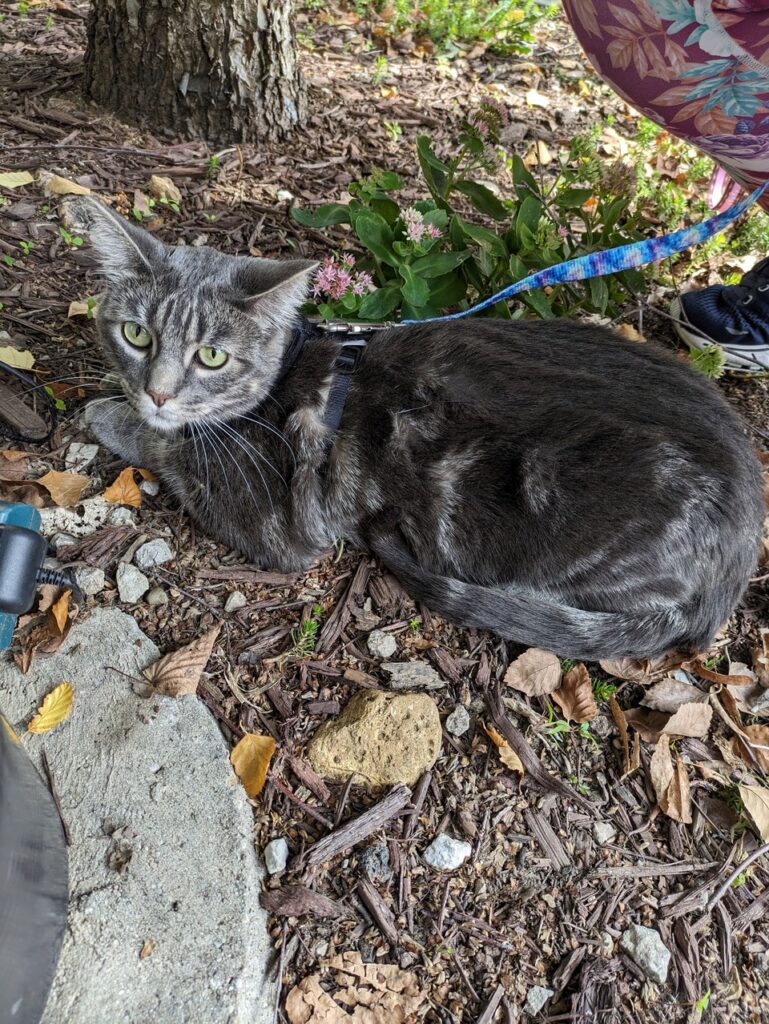
Tiny Tina goes exploring.
Chicagoans should be proud of the caring cooperation and shared resources between local organizations devoted to animals. The Chicagoland Humane Coalition, of which Tree House is one of 16 members, works to ensure the best possible outcomes for pets and people by building upon common ground, focusing on pressing local issues, and supporting varied communities.

Raissa Allaire with friend.
“Once a week we transfer animals from Animal Care and Control to Tree House, once a month we bring up cats from rural areas and downstate, and we often take in cats that are under-socialized from another peer organization. Our volunteers who foster are skilled at working with stray or sick cats,” Allaire said. “We want to provide a pathway for all cats. We have programs in several zip codes where we place feral cats with alternative working placements if they cannot be returned to their original colony. These cats have been spayed or neutered and placed in warehouses and other buildings where their presence helps with controlling rodent populations.”
When a family adopts a cat from Tree House they are provided with post adoption support. “Cats generally need time to adjust to a new home and we want to provide as many tools as possible,” Allaire, who has three adopted cats of her own, said. “Cats have a unique language and a unique body language. They may have their own personalities and quirks but offer unconditional love and lots of lifting of spirits. They are known for providing love on their own terms. I think of the senior citizens dealing with loneliness, and the comfort a cat will provide.”
For further information on the Tree House Humane Society, visit Treehouseanimals.org







